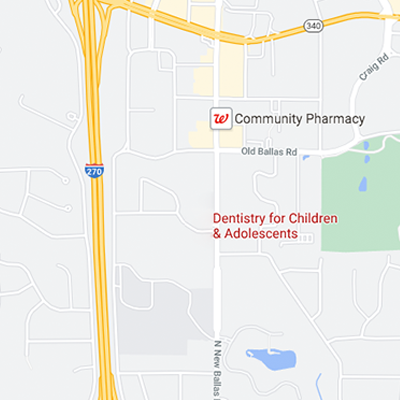
One of the first exciting childhood experiences we outgrow is the excitement of discovering a loose tooth. Sadly, there’s no adult Tooth Fairy waiting to exchange a gift for a lost tooth, and, even worse, there’s no backup tooth all set to replace it.
If one of your permanent teeth is feeling a little less than permanent, don’t ignore the problem! Here are four things to do right away when you discover a loose tooth:
Eat Soft Foods
While you’ll probably automatically take caramels off the menu and ditch your chewing gum, crunchy foods such as nuts, chips, even apples can be a problem for a compromised tooth. Stick with soft foods and try to eat on the opposite side of your loose tooth.
Keep the Area Clean
The typical bacteria and food particles in your mouth won’t thoughtfully leave the area around your wiggly tooth untouched. But your normal brushing and flossing might be a little too much for a loose tooth. Gently rinsing with warm water should do the trick until you can see us.
Leave It Alone
Sometimes the hardest thing to do is to do nothing. But when it comes to a loose tooth, please choose this course of (in)action. You might recall having a loose tooth as a child, and how you’d automatically wiggle it with your tongue or your fingers. But you’ll also remember what happened at the end of all that wiggling—your baby tooth fell out.
Teeth are held in place by ligaments attached to the alveolar bone in the jaw. When those ligaments or bone are damaged because of injury or infection, your tooth feels loose. Wiggling your tooth back and forth can cause further detachment and expose you to more bacteria. So even though it might be tempting, leave your tooth alone until you can see us.
Call Your Dentist Immediately
The most important tip of all! Call Dr. Varble, Dr. Dill, Dr. Wong, and Dr. Parks at once if you notice a loose tooth. It’s important to discover not only the best treatment, but the reason for your loose tooth as well. A loose tooth can be caused by several different conditions, and none of them should be ignored.
If your tooth, ligaments, or bone have suffered trauma, your dentist might be able to stabilize your loose tooth with a splint so that ligament and tissue can heal.
Periodontitis (severe gum disease) is a chronic condition. Pockets form between your gums and teeth that become home to bacteria and infection. Over time, periodontitis can destroy gum, ligament, and bone tissue. Left untreated, it leads to loose teeth and even tooth loss. Gum disease is reversable when caught early enough, and even in later stages can respond well to a variety of treatments.
Hormonal changes during pregnancy can cause the ligaments and bones around your teeth to loosen, and loose teeth are the result. While this situation is usually temporary, taking care of your teeth and gums is essential during pregnancy, and Dr. Varble, Dr. Dill, Dr. Wong, and Dr. Parks will have many important recommendations for your dental health.
Your jaw and teeth can exert hundreds of pounds of pressure. When you spend your sleep hours grinding them, that force is applied to your teeth and the ligaments holding them. Small wonder that bruxism can lead to loose teeth. Your dentist will have ideas to help you stop teeth grinding, from behavioral changes to custom night guards.
Osteoporosis, bite problems, oral cancer, and other conditions can also cause loose teeth. Any condition that causes loose teeth should always be evaluated immediately to prevent more serious medical or dental problems.
Sometimes a loose tooth can’t be saved, and a professional extraction is the best solution. But if there’s a chance to save your tooth, treating the tooth carefully and visiting our Creve Coeur or St. Charles office at once improve your odds considerably. Because there’s no adult Tooth Fairy, and really, no coins under a pillow will ever be as valuable as a beautiful, healthy smile.






